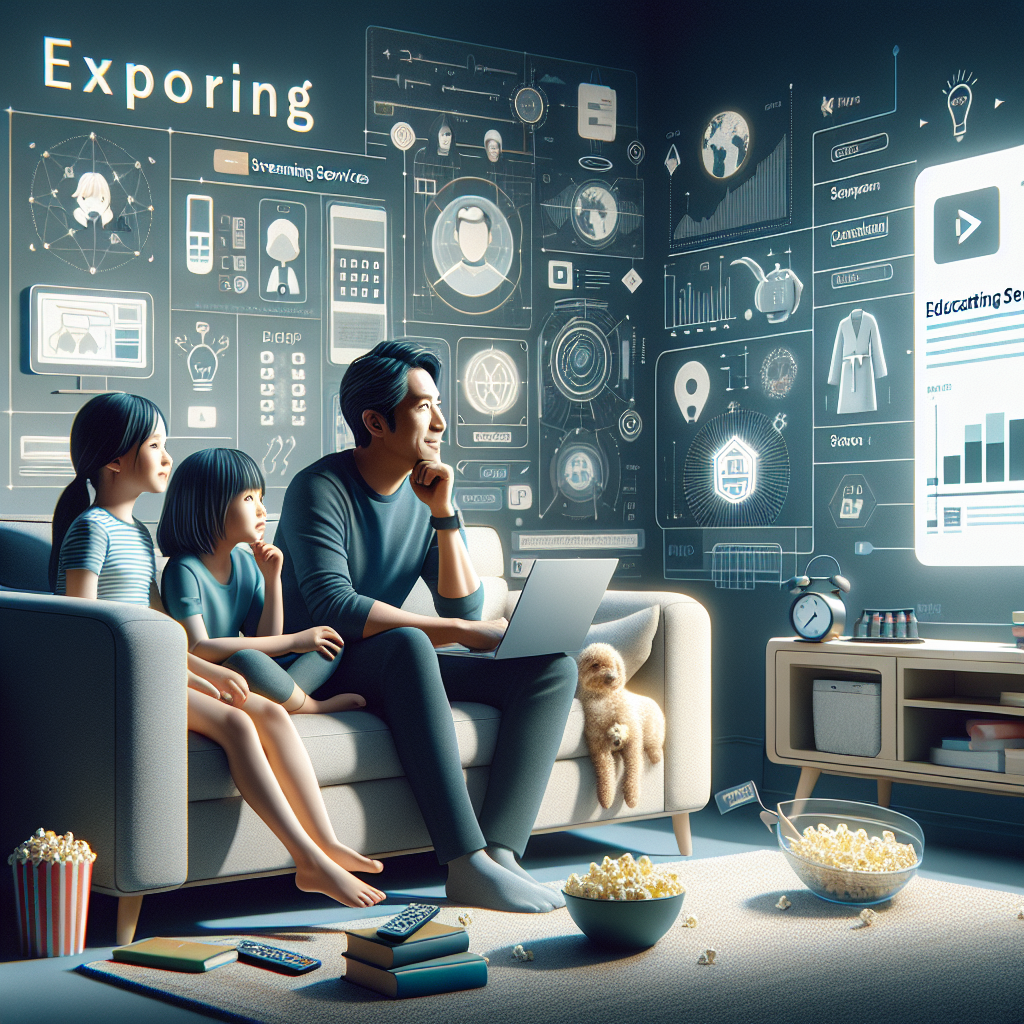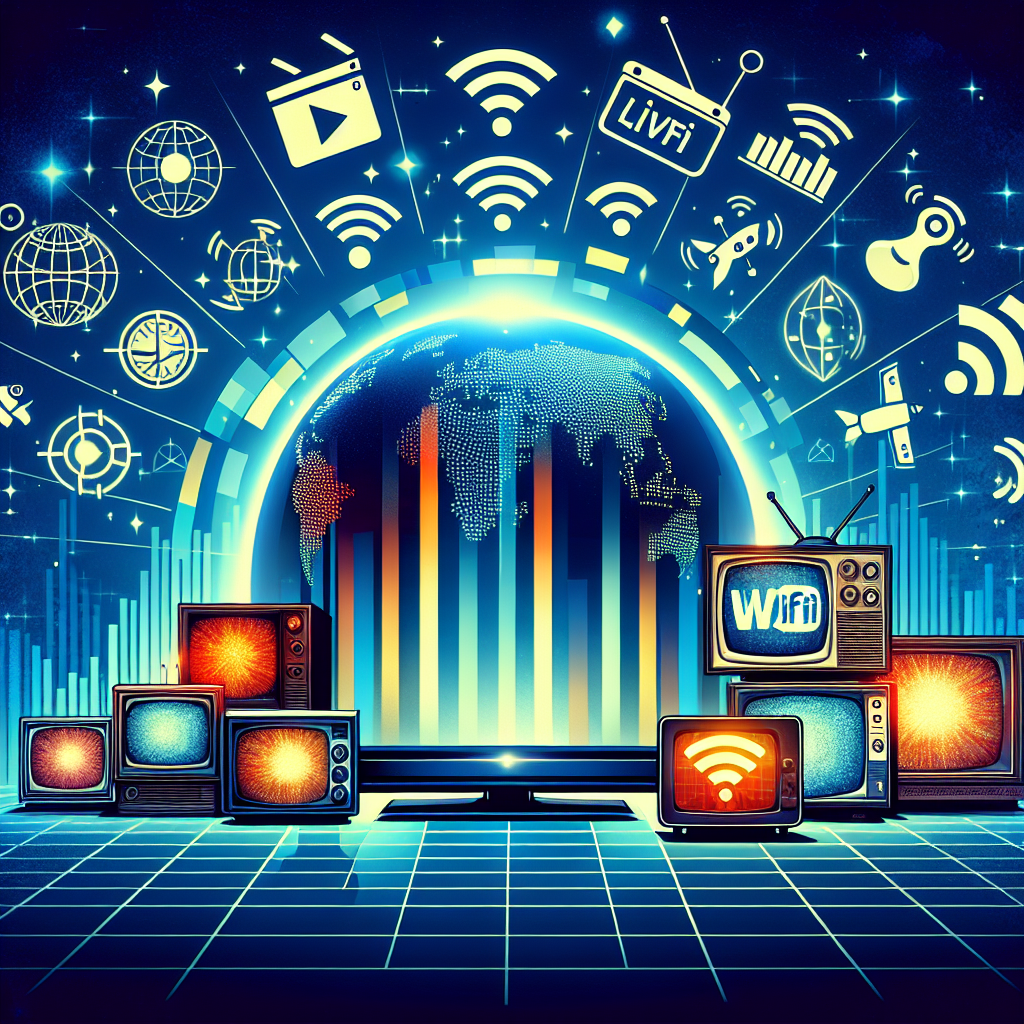In the ever-evolving landscape of education, streaming services have emerged as a vital tool for students and lifelong learners alike. These platforms offer a vast array of educational content, from lectures and documentaries to tutorials and workshops, all accessible at the touch of a button. By exploring the best streaming services for educational content, individuals can expand their knowledge, develop new skills, and stay current in their fields of interest. Whether you’re a student looking to supplement your studies or a professional seeking to upskill, these streaming services provide a wealth of resources to help you reach your goals.
Understanding Educational Streaming Services

Educational streaming services have revolutionized the way individuals access and engage with educational content. These platforms cater specifically to the dissemination of knowledge and information, offering a wide array of educational materials in various formats, such as documentaries, lectures, tutorials, and online courses. Unlike traditional entertainment-focused streaming services, educational platforms prioritize the intellectual enrichment and skill development of their users.
Definition and Importance of Educational Streaming Services
Educational streaming services can be defined as online platforms that provide educational content for users to access remotely via the internet. These services play a crucial role in democratizing education by making high-quality learning resources accessible to a global audience regardless of geographical location or socioeconomic status. The importance of educational streaming services lies in their ability to supplement traditional educational methods, offering a more flexible and personalized learning experience.
How Educational Streaming Services Differ from Entertainment Platforms
One key distinction between educational streaming services and entertainment platforms is their primary objective. While entertainment platforms focus on providing content for leisure and recreational purposes, educational streaming services are designed to facilitate learning and intellectual growth. Additionally, educational platforms often offer curated content that is structured around specific learning objectives or subject areas, whereas entertainment platforms prioritize a diverse range of content for general entertainment purposes.
Benefits of Using Educational Streaming Services
Educational streaming services offer a multitude of advantages for learners seeking to expand their knowledge and skills through digital platforms. These benefits include:
- Access to Diverse and Specialized Content
Educational streaming services provide a wide array of content spanning various subjects and disciplines. By offering specialized courses and documentaries, learners can explore niche topics that may not be readily available through traditional educational mediums. This diverse content library caters to different learning preferences and interests, allowing individuals to delve deeper into areas of study that intrigue them. - Interactive Learning Opportunities
One of the key benefits of educational streaming services is the interactive nature of the content. Through features such as quizzes, discussion forums, and live Q&A sessions, learners can actively engage with the material and participate in collaborative learning experiences. This interactivity fosters a deeper understanding of the subject matter and encourages critical thinking skills, enhancing the overall learning process. - Flexibility in Learning Schedule
Another advantage of educational streaming services is the flexibility they offer in terms of learning schedules. Unlike traditional classroom settings with fixed timetables, streaming platforms allow learners to access educational content at their convenience. Whether it’s fitting in a quick lesson during a lunch break or dedicating a weekend to intensive study sessions, the flexibility of streaming services accommodates diverse learning styles and lifestyles. All you need is high-speed internet.
Popular Educational Streaming Platforms
When it comes to accessing educational content through streaming services, there are several platforms that stand out for their comprehensive offerings. Here are some of the most popular educational streaming platforms:
- Khan Academy: Khan Academy is renowned for its vast collection of free educational resources. Covering a wide array of subjects from mathematics to history, Khan Academy provides instructional videos, practice exercises, and a personalized learning dashboard for learners of all ages.
- Coursera: Coursera is a leading platform for online courses from universities and institutions around the world. With options to audit courses for free or earn certificates for a fee, Coursera offers a diverse range of topics taught by experts in their fields.
- Udemy: Udemy is a hub for both professional and personal development courses. With a focus on practical skills, Udemy offers a plethora of on-demand courses that can be accessed at any time, making it a flexible option for learners looking to acquire new skills.
- LinkedIn Learning: Formerly known as Lynda.com, LinkedIn Learning provides video courses taught by industry professionals on topics such as business, technology, and creative skills. Subscribers have access to a vast library of courses that can help them stay current in their professions or explore new career paths.
Features to Consider When Choosing an Educational Streaming Service
Popular Educational Streaming Platforms
When selecting an educational streaming service, several key features should be taken into consideration to ensure the best learning experience possible. These features include:
- Content Quality and Credibility: One of the most crucial aspects to consider is the quality and credibility of the content available on the platform. Ensure that the educational materials are accurate, up-to-date, and from reputable sources to enhance the learning process.
- User Experience and Interface: A user-friendly interface plays a significant role in the overall experience of using an educational streaming service. Look for platforms that are easy to navigate, offer personalized recommendations, and provide tools for note-taking or interactive learning.
- Cost and Subscription Options: Affordability is another important factor to consider when choosing an educational streaming service. Evaluate the cost of subscription plans, any free trial periods, and whether there are discounts available for students or educators.
- Compatibility with Devices: It is essential to choose a streaming service that is compatible with the devices you plan to use for learning. Whether you prefer to access content on a laptop, tablet, or smartphone, ensure that the platform supports multiple devices for seamless learning anytime, anywhere.

Incorporating Educational Streaming Services in Different Learning Environments
In traditional educational settings, the integration of educational streaming services has revolutionized the way students access and engage with content. By incorporating platforms like Khan Academy, Coursera, and TED-Ed into the curriculum, educators can provide diverse learning materials that cater to various learning styles and preferences. These services offer interactive lessons, virtual field trips, and expert-led tutorials that supplement traditional textbooks and lectures, enhancing students’ understanding and retention of the material.
Furthermore, educational streaming services have found a valuable place in corporate training programs. Companies are increasingly turning to platforms like LinkedIn Learning, Udemy, and Skillshare to upskill their employees and stay competitive in today’s rapidly evolving market. By offering a wide range of courses on topics such as leadership development, technical skills, and industry trends, these services enable employees to learn at their own pace and apply new knowledge directly to their roles. This flexible and personalized approach to learning not only boosts employee morale and engagement but also leads to tangible business outcomes.

Moreover, educational streaming services play a crucial role in promoting lifelong learning and skill development for individuals outside the traditional education system. Platforms like MasterClass, Great Courses Plus, and CuriosityStream offer a plethora of courses and documentaries on subjects ranging from science and history to cooking and photography. These services allow learners to explore new interests, acquire new skills, and stay intellectually stimulated, regardless of their age or background. By providing affordable and accessible education, educational streaming services empower individuals to pursue their passions and continue growing throughout their lives.
Challenges and Misconceptions Surrounding Educational Streaming Services
Addressing Concerns About Screen Time
In today’s digital age, one of the primary challenges surrounding educational streaming services is the concern about increased screen time for students. Parents and educators worry about the potential negative effects of prolonged screen exposure on children’s eyesight, attention spans, and overall well-being. Balancing the benefits of accessing educational content online with the need to limit screen time is a delicate issue that requires thoughtful consideration. Implementing strategies such as setting specific time limits for screen use, encouraging breaks for physical activity, and promoting a healthy digital diet can help address these concerns and create a more balanced approach to educational streaming services.
Ensuring the Quality and Accuracy of Information
Another significant challenge with educational streaming services is ensuring the quality and accuracy of the information presented. With the vast amount of content available online, there is a risk of students being exposed to misinformation, biased perspectives, or outdated material. Educators must carefully curate and vet the educational streaming services and platforms used in the classroom to ensure that the content aligns with curriculum standards, is age-appropriate, and comes from reputable sources. Teaching students critical thinking skills and how to evaluate the credibility of online sources is essential in navigating the sea of information available through streaming services.
Overcoming Resistance to Online Learning
Resistance to online learning is another common misconception surrounding educational streaming services. Some educators and parents may be hesitant to fully embrace digital platforms for educational purposes due to concerns about lack of personal interaction, distractions, or the perceived impersonal nature of online learning. However, with the advancement of technology and the development of interactive features in many educational streaming services, online learning can be engaging, interactive, and tailored to individual learning styles. Overcoming resistance to online learning requires demonstrating the effectiveness of digital tools in enhancing educational outcomes, providing training and support for educators in utilizing streaming services effectively, and highlighting the potential benefits of incorporating technology into the learning process.
Future Trends in Educational Streaming Services
In the rapidly evolving landscape of educational streaming services, several trends are shaping the future of online learning. These trends not only enhance the accessibility and effectiveness of educational content but also cater to the diverse needs of learners worldwide.
Integration of Virtual Reality and Augmented Reality
Virtual Reality (VR) and Augmented Reality (AR) technologies are revolutionizing the way educational content is delivered and consumed. By immersing users in realistic simulations and interactive environments, VR and AR offer unparalleled opportunities for experiential learning. Students can explore historical sites, conduct complex scientific experiments, or practice real-life skills in a safe and controlled virtual space. As these technologies become more accessible and affordable, educational streaming services are increasingly incorporating VR and AR to provide engaging and interactive learning experiences.
Personalized Learning Experiences through Artificial Intelligence
Artificial Intelligence (AI) algorithms are being leveraged to create personalized learning pathways for students. By analyzing user data and behavior, AI can recommend tailored content, adaptive assessments, and individualized feedback to learners. This level of personalization not only enhances engagement and motivation but also helps students learn at their own pace and in a style that suits their unique preferences. Educational streaming services are harnessing the power of AI to deliver customized educational experiences that cater to the specific needs and learning objectives of each student.
Expansion of Global Learning Communities through Online Platforms
Online platforms are fostering the growth of global learning communities by connecting students, educators, and experts from around the world. Through live streaming, virtual classrooms, and collaborative tools, educational streaming services are breaking down geographical barriers and enabling cross-cultural exchanges. Students can engage in discussions, projects, and cultural exchanges with peers from diverse backgrounds, gaining valuable insights and perspectives that enrich their learning experience. As online platforms continue to expand and diversify, the global learning community is becoming more interconnected, inclusive, and dynamic, paving the way for a truly borderless education system.
FAQs: Exploring the Best Streaming Services for Educational Content
What are some popular streaming services for educational content?
Some popular streaming services for educational content include Coursera, Khan Academy, Udemy, and Lynda.com. These platforms offer a wide range of online courses, tutorials, and lectures on various subjects such as science, technology, math, languages, and business.
Are these streaming services free to use?
While some educational streaming services, like Khan Academy, offer free content, others may require a subscription or payment for access to their full range of courses and materials. It’s important to explore the pricing options of each service to find one that fits your budget and educational needs.
Can I earn certificates or degrees from these streaming services?
Some streaming services, like Coursera and Udemy, offer certificates of completion for their courses, while others may offer accredited degrees or certifications. It’s important to research each platform’s offerings and credibility to determine if it aligns with your educational goals and requirements.
How can I make the most out of using streaming services for educational content?
To make the most out of using streaming services for educational content, it’s important to set goals for your learning, schedule dedicated time for studying, actively engage with the materials, and seek out additional resources or support when needed. Additionally, staying motivated and consistent in your learning journey will help you maximize the benefits of these platforms.


